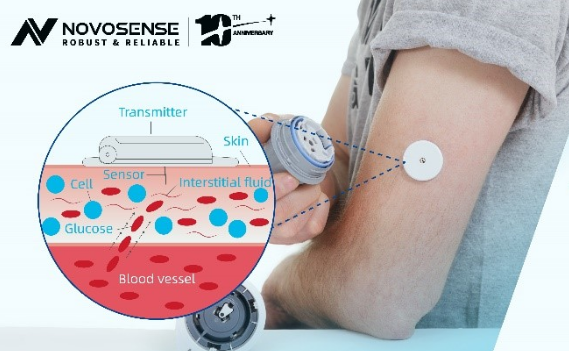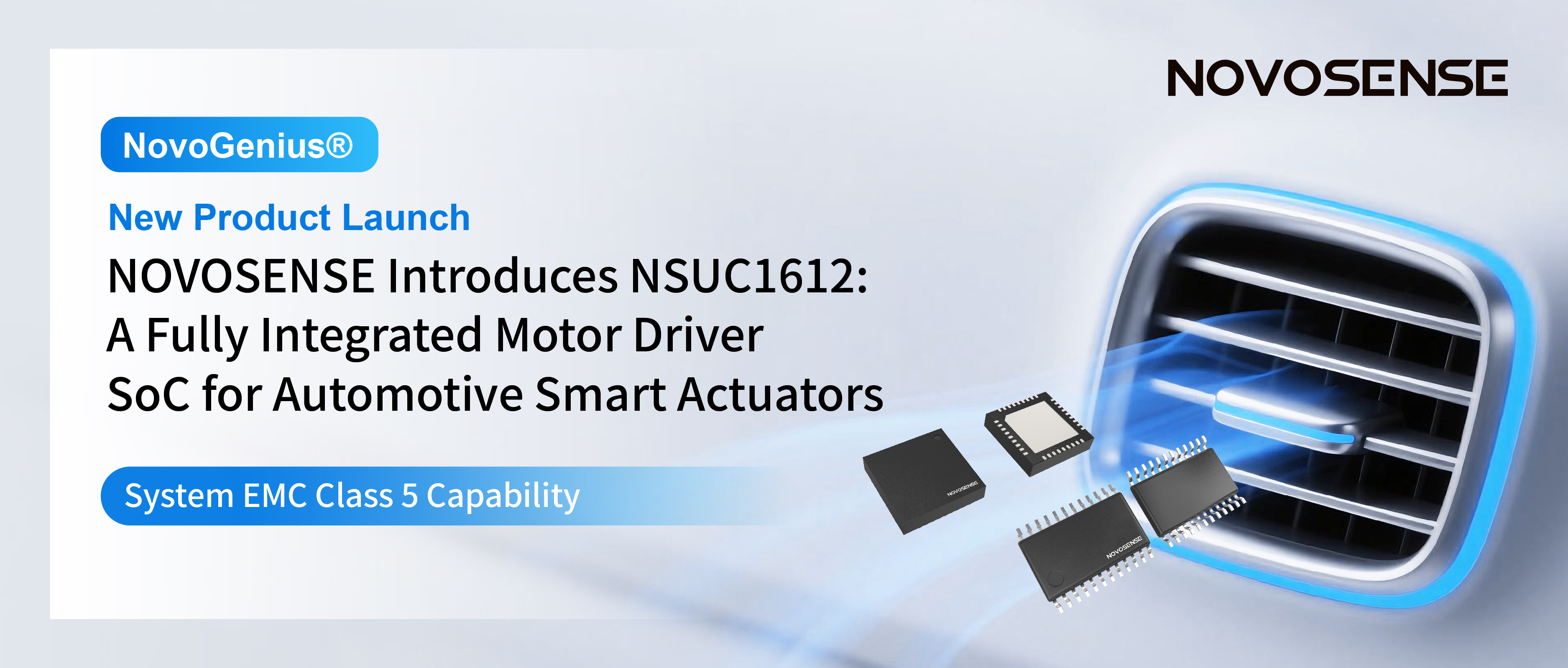- Ameya360 Component Supply Platform >
- Trade news >
- AMEYA360:NOVOSENSE NST1002 facilitates accurate CGM measurement with glucose monitoring black technology
AMEYA360:NOVOSENSE NST1002 facilitates accurate CGM measurement with glucose monitoring black technology
Glucose monitoring is a key link in diabetes management. Currently, there are two main methods for self-monitoring of glucose in patients with diabetes, one is the traditional blood glucose Monitoring (BGM), and the other is continuous glucose monitoring (CGM). CGM can provide dynamic, comprehensive and reliable whole-day glucose information to understand the trend of glucose fluctuations, and find hidden hyperglycemia and hypoglycemia, thus becoming a new trend in glucose monitoring.

Principle and technical difficulties of CGM
CGM allows real-time monitoring of glucose concentration in subcutaneous tissue fluid by implanting glucose sensors. Sensor is the core component of CGM system with high barriers, which directly determines whether the measurement results of CGM system are accurate. Sensor electrode, film layer, sensing layer and calibration algorithm are also the key to determine the performance.
The CGM system measures glucose concentration in interstitial fluid. Although there is a high correlation with glucose concentration, the difference between the two is not constant. There are great differences between concentration difference and the time to reach concentration equilibrium in different physiological states such as rest, post-meal, exercise, respiration and hypoxia. In addition, factors such as electrode passivation and exotic reactant coating on the surface of the sensor will also cause the sensitivity of the sensor to change with the change of implantation time. In the actual application, environmental temperature, external pressure and other factors can bring measurement errors.
The above problems can be solved by the calibration algorithm. In the calibration algorithm model, as an important variable, the ambient temperature or body surface temperature has an important impact on the effectiveness of the algorithm model.
NST1002 facilitates accurate CGM measurement
The NOVOSENSE NST1002 is a high-precision, low-power temperature sensor that can sense changes in ambient temperature or body surface temperature in real time and adjust the algorithm accordingly to make glucose monitoring more accurate.
Structure design and installation position of temperature sensor NST1002 applied in CGM
In the actual application of CGM products, the structure design and installation position of NST1002 are also very particular. In terms of structure design, NST1002 can be close to the skin of the body surface to achieve accurate collection of body surface temperature, so as to provide more effective data.
With accumulated rich experience in surface temperature acquisition solutions, NOVOSENSE temperature sensor can help customers quickly complete product structure design and material selection. The flexible probe of the interstitial fluid glucose sensor is less than 0.4 mm in diameter and can be inserted 5 mm below the skin to ensure accurate sensing of glucose concentration in the interstitial fluid outside the cells.
Online messageinquiry
- Week of hot material
- Material in short supply seckilling
| model | brand | Quote |
|---|---|---|
| MC33074DR2G | onsemi | |
| RB751G-40T2R | ROHM Semiconductor | |
| BD71847AMWV-E2 | ROHM Semiconductor | |
| CDZVT2R20B | ROHM Semiconductor | |
| TL431ACLPR | Texas Instruments |
| model | brand | To snap up |
|---|---|---|
| BP3621 | ROHM Semiconductor | |
| IPZ40N04S5L4R8ATMA1 | Infineon Technologies | |
| TPS63050YFFR | Texas Instruments | |
| ESR03EZPJ151 | ROHM Semiconductor | |
| STM32F429IGT6 | STMicroelectronics | |
| BU33JA2MNVX-CTL | ROHM Semiconductor |
- Week of ranking
- Month ranking
Qr code of ameya360 official account
Identify TWO-DIMENSIONAL code, you can pay attention to


Please enter the verification code in the image below:


























